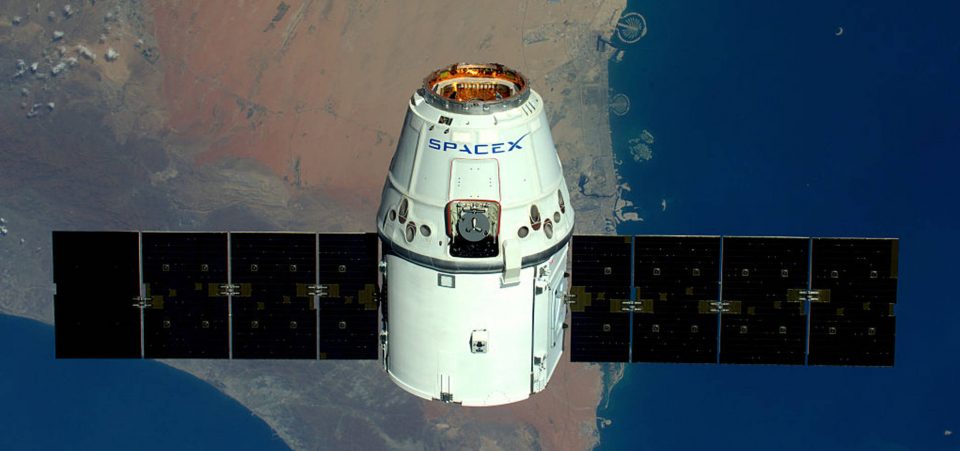While Subsidized Electric Cars Might Suffer Under Trump, There Is Logic for a SpaceX IPO
It would surprise Elon Musk fans and detractors (of whom there are many in both camps) to discover that SpaceX could benefit from the Donald Trump presidency. Indeed, SpaceX might even start to consider a SpaceX initial public offering (IPO) under the Trump administration.
From a business perspective, on paper, a SpaceX IPO makes more sense than the Tesla Motors Inc (NASDAQ:TSLA) IPO did. SpaceX has received fewer subsidies than Tesla. Government contracts pay for SpaceX’s development, rather than Americans’ taxes, as is the case with Tesla. SpaceX won a $6.0-billion tender to supply the International Space Station (ISS). In 2016, SpaceX also won its first military contract.
Donald Trump’s ascent to the White House has not pleased everybody. The ongoing protests in various U.S. cities and even some abroad—in Paris, for example—continue. One of the aspects of Trump’s presidency that worries those who did not vote for him is the new president’s skepticism on climate change.
Trump threatens to repeal subsidies for “green technologies,” including the credits that have made Tesla electric cars more affordable. But some feel that Trump’s enviro-skepticism might favor SpaceX, Elon Musk’s other venture. That’s why, after SpaceX achieves its first successful manned mission, a SpaceX IPO would be realistic.
Many of Trump’s fellow Republicans in U.S. Congress have criticized Tesla for its reliance on government subsidies. The L.A. Times has estimated that in 2015 alone, Tesla got $2.4 billion in taxpayer-funded support, largely from California and Nevada (where it is building the lithium-ion battery “Gigafactory”). (Source: “Will Elon Musk’s SpaceX Crash Land On Planet Trump?,” Forbes, November 14, 2016.)
SpaceX will launch satellites for the U.S. Air Force. (Source: “SpaceX wins $82 million contract for 2018 Falcon 9 launch of GPS 3 satellite,” SpaceNews, April 27, 2016.)
If anything, SpaceX has suffered from overly ambitious plans. Its “Falcon 9” rocket, probably the most powerful rocket made by a private contractor, recently suffered a blow. Literally, the rocket blew up on liftoff, taking an Israeli satellite with it.
Barring further incidents, SpaceX expects to start carrying actual humans into space before 2020. This would eliminate the need to import Russian rockets. These replaced the Space Shuttle after it was retired in 2011. In 2024, SpaceX will launch a manned mission to Mars, or at least that’s what the company’s boss, Elon Musk, says.
You might be skeptical about SpaceX’s ambitions. Indeed, SpaceX’s calendar for the human colonization of Mars is positively science-fiction-like, but Trump would defy you on SpaceX. Yes, Trump promises—it’s still not clear if he shall execute—isolationist and populist policies. Many people fear he will waffle on the “fight against global warming,” but Trump will likely help SpaceX thanks precisely to his skepticism on the theory of man-made global warming.
During the Barack Obama administration, NASA had been relegated to little more than an advanced weather station. Trump wants NASA to resume actual space exploration instead of worrying about the weather and climate. Trump wants NASA to focus on conquering the solar system, perhaps starting with a new mission to the moon to beat China? (Source: Ibid.)
Robert Walker, Donald Trump’s space advisor, said the Obama administration reduced NASA to a logistics agency that focuses on supplying the ISS and politically correct environmental monitoring. (Source: “Trump to scrap Nasa climate research in crackdown on ‘politicized science’,” The Guardian, November 22, 2016.)
Under Trump then, NASA would get back to the exciting space missions. Under Obama, NASA’s “Earth Sciences” division’s budget increased by 50%. Obama also proposed almost a billion dollars in cuts for NASA’s distant space exploration unit. Trump seems more willing to send Americans back to the moon, to Mars and beyond. While Trump’s business background might not make it easy to accept SpaceX delays and problems, it seems that SpaceX has more to gain than lose under Trump.
Trump would be able to claim both the glory of renewed space missions—the kind that capture the imagination—while relying more on the private sector, reducing the taxpayer’s bill. While Trump and his voters might frown on Tesla’s method of profiting from tax credits, they would welcome SpaceX. It’s private, and its rockets and spaceships are made in the good ole’ USA.






